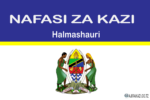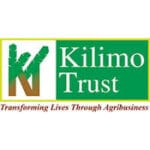AboutTanzania Extractive Industries Transparency Initiative (TEITI)
Tanzania Extractive Industry Transparency Initiative (TEITI) is the Tanzania Chapter of the global Extractive Industry Transparency Initiative (EITI). The Government of Tanzania is committed to implement EITI, a global standard for revenue transparency and a global coalition of governments, companies and civil society organisations. 57 countries have committed to strengthening transparency and accountability of their extractive sector management by implementing the EITI Standard. Out of 57 implementing countries 27 are from Africa. Tanzania was accepted as an EITI implementing country by the EITI International Board on 16 February 2009 and become compliant in 2012.
The EITI implementation in Tanzania is overseen by a tripartite Multi-Stakeholders Working Group (MSG). The group is steered by nine-members composed of two representatives from civil society organizations, two from extractive companies, four from the Government, and the Chairperson who is appointed by the President in compliance with Section 5 of the TEITI Act, 2015 and its amendments of 2021. The work of the MSG is governed by the requirements of the Tanzania Extractive Industries (Transparency and Accountability Act, 2015 and its Regulations of 2019.The MSG is supported by a Secretariat (TEITI) which is responsible for the implementation of the EITI process on a day to day basis.
To date, Tanzania has published twelve (12) TEITI reports covering the period from 1st July 2008 to 30th June 2020. TEITI reports contributes to building public confidence and trust in the extractive companies and Government with regards to oil, gas and mining investment operations in the country. The data compiled in the TEITI reports is therefore expected to facilitate public understanding of the contribution of the extractive industries in the country. Moreover, facilitating public understanding and use of the TEITI reports, data should contribute towards reinforcing the informed critical mass of citizens and provide impetus for the public demand for transparency and accountability from government and the extractive companies exploiting the country’s natural resources.











